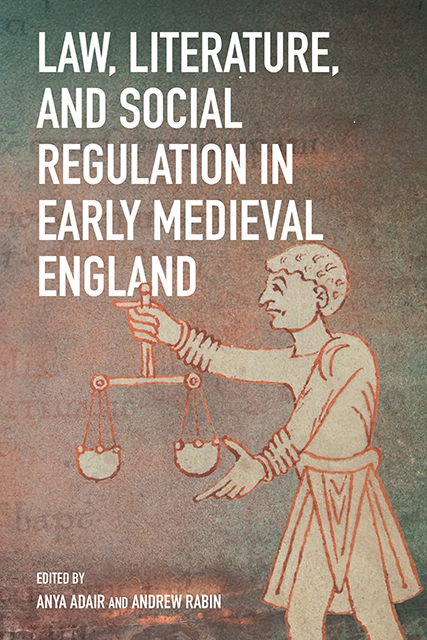2 - Cynescipe, Bishop Æthelwold, and the Spread of Legal Language
Published online by Cambridge University Press: 10 June 2023
Summary
In the tenth century, the Winchester school, led by Bishop Æthelwold, embarked on an ambitious mission: the standardization of Old English. This lofty goal was attempted through a uniformity in word choice and the promotion of specific vocabulary. The undertaking was effected over the course of many years; with Winchester's role as an influential political, religious and cultural center, the success of this deliberate attempt to standardize vocabulary can be seen in the numerous charters, wills, diplomas, as well as the many manuscripts that the scriptorium produced. Closely associated scribal centers, such as Canterbury and Rochester, also felt the effects of these labors, as the Winchester vocabulary trickled into their writings – though not with as great a degree of regularity. Over the past century, scholars such as Eduard Dietrich, Walter Hofstetter, Karl Jost, Josef Kirschner, Helmut Gneuss, and Celia and Kenneth Sisam, among others, have identified words promoted by the Old Minster, and the lasting impact this had on the writings of pupils, such as Ælfric of Eynsham, educated therein. In noting striking similarities between the English interlinear glosses in the psalter held by Lambeth Palace Library and those in a manuscript held by the British Library, Celia and Kenneth Sisam postulated an “influential monastic school in which these standard equivalents were taught.” We now know this to be Winchester.
I propose adding an additional term, cynescipe, to that list of Winchester vocabulary favored by Æthelwold and his circle. The word cynescipe, or “royal dignity,” demonstrates how a term spread from legal to non-legal texts in tenth- and eleventh-century England. In this essay, I show how the promulgation of this term, so closely involved with the medieval ideas of kingship, is intricately tied to the influence of scribal communities and the role of monastic centers in the tenth century. Succinct analysis of the term is feasible because, according to the Dictionary of Old English, there are seventeen appearances of the word in the Old English corpus, the majority of which are in legal contexts; many of these occurrences are in legal prologues, paratextual spaces that straddle that same line between legal and literary genres through the expository prose that justifies and authorizes their texts. While caution must always be urged at drawing firm conclusions from small bodies of work, the outstanding evidence points strongly toward a relationship with Winchester and specifically the bishop who headed the prestigious scriptorium.
- Type
- Chapter
- Information
- Publisher: Boydell & BrewerPrint publication year: 2023



